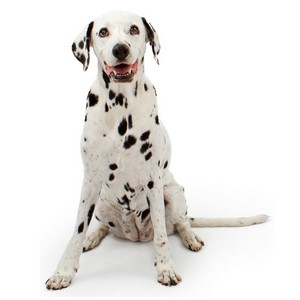Dalmatian Behaviour Traits
The Dalmatian is a Small Purebred pet that originates from the Hound group. Dalmatians are characterised by the following behavioural qualities: Clever, Courageous, Devoted, Lively, Playful. This pet is quite energetic and needs regular exercise and play. Normally speaking, their behaviour is not good with kids and they are good at adjusting to brand-new environments and surroundings. Dalmatians generally don't interact well with other dogs, however this can be worked with adequate training and socialisation from puppyhood. They are not the easiest dogs to train, and may be difficult for first time dog owners.









